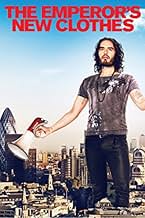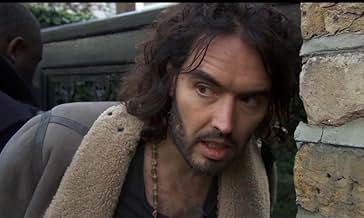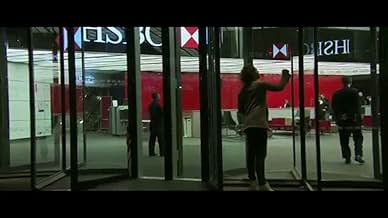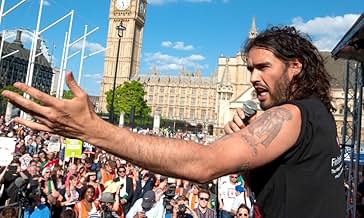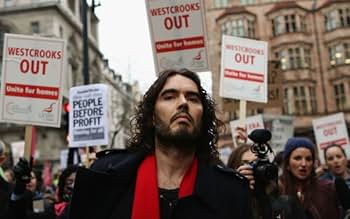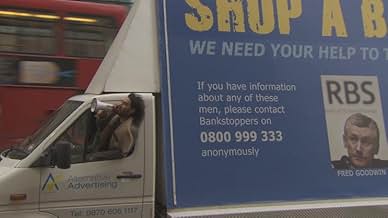IMDb RATING
7.0/10
1.4K
YOUR RATING
A look at the growing disparity between different economic classes.A look at the growing disparity between different economic classes.A look at the growing disparity between different economic classes.
- Director
- Writers
- Stars
Geraint Anderson
- Former Banker Dresdener Kleinwort
- (archive footage)
Brigitte Bardot
- Self
- (archive footage)
Jean-Paul Belmondo
- Self
- (archive footage)
Richard Brooks
- Former HMRC Tax Inspector
- (archive footage)
- …
Warren Buffett
- CEO Berkshire Hathaway
- (archive footage)
George W. Bush
- Former President, USA
- (archive footage)
David Cameron
- Prime Minister, UK
- (archive footage)
John Christensen
- Economist
- (archive footage)
- …
Andrew Craig
- Former Banker UBS
- (archive footage)
Reece Davis-James
- Looter
- (archive footage)
- …
Bill de Blasio
- Mayor of New York City, USA
- (archive footage)
- (as Mayor Bill de Blasio)
David DeGraw
- Occupy Activist
- (archive footage)
Bob Diamond
- CEO Barclays Bank
- (archive footage)
Bernie Ecclestone
- Chief Executive Formule One
- (archive footage)
Milton Freedman
- Economist, USA
- (archive footage)
Fred Goodwin
- Former CEO Royal Bank of Scotland
- (archive footage)
Philip Green
- Owner Topshops
- (archive footage)
- Director
- Writers
- All cast & crew
- Production, box office & more at IMDbPro
Featured reviews
After watching this documentary, the children were impressed so I asked them to reach for their mobile phones and google "how many phones are in the world". They know no other phones than mobile phones and no better source than Wikipedia. Probably, neither do you.
Wikipedia told them that there are approximately over 6,800,000,000 mobile phones in use for a global population of 7,012,000,000. They also delighted themselves by looking up the breakdown by country etc. Please also do so yourself.
Thirty, forty years ago no one could have thought that by today each person would have their own private phone line, much less in their pocket, and to boot, not just a phone but a computer.
Yet the poor are getting poorer, we are told.
I wonder what this documentary would have been like if instead of wealth, Russell Brand had had knowledge or commonsense. We will never find out.
Wikipedia told them that there are approximately over 6,800,000,000 mobile phones in use for a global population of 7,012,000,000. They also delighted themselves by looking up the breakdown by country etc. Please also do so yourself.
Thirty, forty years ago no one could have thought that by today each person would have their own private phone line, much less in their pocket, and to boot, not just a phone but a computer.
Yet the poor are getting poorer, we are told.
I wonder what this documentary would have been like if instead of wealth, Russell Brand had had knowledge or commonsense. We will never find out.
Greetings again from the darkness. I'm not one of those who subscribe to the belief that documentary films should present all sides to the story in a "just the facts, ma'am" style. In fact, I respect a filmmaker who is so passionate about a topic that he/she enthusiastically attempts to overwhelm the viewer with "proof" that their opinion is the definitive truth and no further debate is needed. Here, renowned director Michael Winterbottom (The Trip, 2010) supports comedian/actor/activist Russell Brand in his agenda to educate the masses on the evil of big banks and rich people, and the need for re-distribution of wealth.
Now that agenda may seem a bit odd coming from an admitted rich guy, but in fact, Brand's professional success lends some credibility to his argument or at least it's a different approach than having a group of people living in poverty talk about how they got screwed by "the man".
To say that Brand dumbs-down his explanation is certainly an understatement. To emphasize this, there are a couple of segments where he utilizes elementary level students to differentiate between rich and poor – what's fair and what's not. Concentrating mostly on the British economy, while also noting the similarities to the United States 2008 crash, Brand makes the argument that the turning point was approximately 35 years ago as Margaret Thatcher assumed power and Free Market Capitalism took over. It's a bizarre point coming from a native of a country whose Monarchs (not known for their "fairness") date back for centuries. However, this is an example of the keep-it-simple approach in getting the masses to join his quest.
Borrowing a page from Michael Moore's long-successful script, Brand presents the big banks and the super rich as the villains of society. It's a common theme and one that's pretty easy to agree with the banks were bailed out, and then proceeded to pay their upper management huge bonuses. The viable argument is, why don't they pay "us" back? Brand attempts to follow Moore's lead again (while referencing Joseph Campbell) by walking into the banks and asking to see the CEO's. These attempts fall flat, and leave us with Brand wise-cracking while bystanders try to figure out if it's all a prank.
The most effective sequences involve Brand walking the streets of Grays London where he was raised. His discussions with the locals are real, and infinitely more enlightening than his storming into bank lobbies. The statistics don't lie – the rich are getting richer, while the rest of society struggles. George Carlin said it best the poor are needed to keep the middle class motivated to work so the rich can benefit. Brand also rails against legal tax evasion via offshore accounts – especially in Grand Cayman. He lobbies for those accounts to be taxed and the money returned to the country of origin.
Most of Brand's mission is preaching the importance of fairness, and the claim is made that by definition, capitalism is the inequality of power. Whether you agree with him or not, Brand is to be respected for using his celebrity status for a cause much more important than the best table in a restaurant, or courtside seats to a game. His simple-is-best approach carries right through to the end where he does offer up his list of recommendations to create a more fair system. If his simple and sometimes funny approach allows more people to enter into discussions, then his cause is worthwhile, even if his recommendations are a bit lacking in substance and depth.
Now that agenda may seem a bit odd coming from an admitted rich guy, but in fact, Brand's professional success lends some credibility to his argument or at least it's a different approach than having a group of people living in poverty talk about how they got screwed by "the man".
To say that Brand dumbs-down his explanation is certainly an understatement. To emphasize this, there are a couple of segments where he utilizes elementary level students to differentiate between rich and poor – what's fair and what's not. Concentrating mostly on the British economy, while also noting the similarities to the United States 2008 crash, Brand makes the argument that the turning point was approximately 35 years ago as Margaret Thatcher assumed power and Free Market Capitalism took over. It's a bizarre point coming from a native of a country whose Monarchs (not known for their "fairness") date back for centuries. However, this is an example of the keep-it-simple approach in getting the masses to join his quest.
Borrowing a page from Michael Moore's long-successful script, Brand presents the big banks and the super rich as the villains of society. It's a common theme and one that's pretty easy to agree with the banks were bailed out, and then proceeded to pay their upper management huge bonuses. The viable argument is, why don't they pay "us" back? Brand attempts to follow Moore's lead again (while referencing Joseph Campbell) by walking into the banks and asking to see the CEO's. These attempts fall flat, and leave us with Brand wise-cracking while bystanders try to figure out if it's all a prank.
The most effective sequences involve Brand walking the streets of Grays London where he was raised. His discussions with the locals are real, and infinitely more enlightening than his storming into bank lobbies. The statistics don't lie – the rich are getting richer, while the rest of society struggles. George Carlin said it best the poor are needed to keep the middle class motivated to work so the rich can benefit. Brand also rails against legal tax evasion via offshore accounts – especially in Grand Cayman. He lobbies for those accounts to be taxed and the money returned to the country of origin.
Most of Brand's mission is preaching the importance of fairness, and the claim is made that by definition, capitalism is the inequality of power. Whether you agree with him or not, Brand is to be respected for using his celebrity status for a cause much more important than the best table in a restaurant, or courtside seats to a game. His simple-is-best approach carries right through to the end where he does offer up his list of recommendations to create a more fair system. If his simple and sometimes funny approach allows more people to enter into discussions, then his cause is worthwhile, even if his recommendations are a bit lacking in substance and depth.
I don't really follow celebrity culture, and just in case you think that means I'm far too highbrow to do so, I also am pretty bad at following the other end of that spectrum either. I mention this because Russell Brand is in both of those in some ways, and in both areas I am aware of him but little more than that – for some reason I don't care for him when I have seen him, but at the same time I would struggle to specifically tell you what I have seen him in. This film of course got more attention due to his involvement, and it was this publicity that drew me to watch the film, even if it was the message that I actually wanted to hear.
In terms of that message, it is perfectly worthy and valid, and, as Brand says at the start of the film – really nothing you have not heard before. Problem with that sentence is that it is only part of the truth, because not only will you have heard all of this before, but predominately you will have heard it all done better too. Brand seems to have been identified as the key problem with the film, but for me the whole approach and tone of the film is off – okay it is off because it is modeled around the Brand brand (if you will) but this is not a solo project, there are other people who should have evened this out, not least of which is Winterbottom. The issue with the film is evident from the very start, because no matter its other faults, the film is at least consistent across its running time. It appears to be aimed at 'the people', or at least the perception of who 'the people' are. What this means in reality is that we have the 'geezer' factor turned up to 11, everything is a little bit cheeky, and things are played out in very simple terms, and with a very basic structure and approach.
For some maybe this will win you over, but personally I found it grating and patronizing – and not just Brand. To focus on the content (as we should), the film has this great point, but it makes it far too simply; getting school children to yell out like the film is a panto doesn't work, and the film not having access to people beyond security guards also doesn't work. Many other devices and specifics fall flat, and the fact we have heard this all before does tend to come across even louder – and the fact it isn't working just highlights how much better others have covered the same material, whether in documentaries or in satirical news shows. This is my fundamental problem with the film – that it doesn't make its case at all well; however there is no point in me pretending that Brand himself is not a big part of this. His style and manner here seems so insincere and patronizing. His efforts to 'speak to the people' seem too labored, and his many throwaway sentences attempting to charm just grated on me; he does appear to have good intentions, but he overplays the act of 'I'm just a simple bloke me, just a local boy like yourself mate' – for example saying he doesn't know anything about Libor when he so clearly does, as if angry ignorance is something he thinks will appeal to those watching (which maybe is true, but it still speaks to his views on the 99% when he thinks such a character is one we will appreciate). To be fair, in the film people do seem to respond to this approach, so he may well be a matter of taste.
Ultimately the film is Brand and it is hard to separate them. As such it is a film with a mostly worthy message and intent, but done in an insincere and messy fashion which seems to be trying to ingratiate itself to the populace but actually just comes off as an insincere act which at best is a bit grating, and at worst is patronizing and condescending.
In terms of that message, it is perfectly worthy and valid, and, as Brand says at the start of the film – really nothing you have not heard before. Problem with that sentence is that it is only part of the truth, because not only will you have heard all of this before, but predominately you will have heard it all done better too. Brand seems to have been identified as the key problem with the film, but for me the whole approach and tone of the film is off – okay it is off because it is modeled around the Brand brand (if you will) but this is not a solo project, there are other people who should have evened this out, not least of which is Winterbottom. The issue with the film is evident from the very start, because no matter its other faults, the film is at least consistent across its running time. It appears to be aimed at 'the people', or at least the perception of who 'the people' are. What this means in reality is that we have the 'geezer' factor turned up to 11, everything is a little bit cheeky, and things are played out in very simple terms, and with a very basic structure and approach.
For some maybe this will win you over, but personally I found it grating and patronizing – and not just Brand. To focus on the content (as we should), the film has this great point, but it makes it far too simply; getting school children to yell out like the film is a panto doesn't work, and the film not having access to people beyond security guards also doesn't work. Many other devices and specifics fall flat, and the fact we have heard this all before does tend to come across even louder – and the fact it isn't working just highlights how much better others have covered the same material, whether in documentaries or in satirical news shows. This is my fundamental problem with the film – that it doesn't make its case at all well; however there is no point in me pretending that Brand himself is not a big part of this. His style and manner here seems so insincere and patronizing. His efforts to 'speak to the people' seem too labored, and his many throwaway sentences attempting to charm just grated on me; he does appear to have good intentions, but he overplays the act of 'I'm just a simple bloke me, just a local boy like yourself mate' – for example saying he doesn't know anything about Libor when he so clearly does, as if angry ignorance is something he thinks will appeal to those watching (which maybe is true, but it still speaks to his views on the 99% when he thinks such a character is one we will appreciate). To be fair, in the film people do seem to respond to this approach, so he may well be a matter of taste.
Ultimately the film is Brand and it is hard to separate them. As such it is a film with a mostly worthy message and intent, but done in an insincere and messy fashion which seems to be trying to ingratiate itself to the populace but actually just comes off as an insincere act which at best is a bit grating, and at worst is patronizing and condescending.
I spotted this on Amazon Prime video and decided to take a look, I've never been a huge fan of Russell Brand and was curious about the content.
I found this documentary to be thought provoking and well worth watching. Russell Brand has gained my respect because I believe he is, in his own inimitable style, trying to open people's eyes to the gross inequalities of life in Britain today. I felt compelled to write this review having seen a couple of negative comments about looting, nobody bothered to mention the bankers? This documentary explains in simple terms about the economic crisis and the application of austerity measures to the detriment of those least able to afford it and it does it in a way that keeps you watching to the very end. I do not think It will ever change the opinions of those with closed minds, but for anyone else it should at least make you think, I thoroughly recommend watching this documentary.
I found this documentary to be thought provoking and well worth watching. Russell Brand has gained my respect because I believe he is, in his own inimitable style, trying to open people's eyes to the gross inequalities of life in Britain today. I felt compelled to write this review having seen a couple of negative comments about looting, nobody bothered to mention the bankers? This documentary explains in simple terms about the economic crisis and the application of austerity measures to the detriment of those least able to afford it and it does it in a way that keeps you watching to the very end. I do not think It will ever change the opinions of those with closed minds, but for anyone else it should at least make you think, I thoroughly recommend watching this documentary.
He's bringing up some really good points about the lawlessness of the city when it comes to financial crimes committed by the banks.
One thing he keep's blaming it on is a 'free market' This is just simply not true, we don't have a free market by any stretch of the imagination.
We live in an oligarchy with the rich being above the law.
Don't be fooled, more power to government is not the answer.
There's been many attempts to blame it on capitalism, since Marx. This has never and will never lead to a revolution that will do the common people any good whatsoever.
One thing he keep's blaming it on is a 'free market' This is just simply not true, we don't have a free market by any stretch of the imagination.
We live in an oligarchy with the rich being above the law.
Don't be fooled, more power to government is not the answer.
There's been many attempts to blame it on capitalism, since Marx. This has never and will never lead to a revolution that will do the common people any good whatsoever.
Details
- Release date
- Countries of origin
- Language
- Also known as
- El traje nuevo del emperador
- Filming locations
- Production company
- See more company credits at IMDbPro
Box office
- Gross worldwide
- $50,539
- Runtime
- 1h 41m(101 min)
- Color
Contribute to this page
Suggest an edit or add missing content





